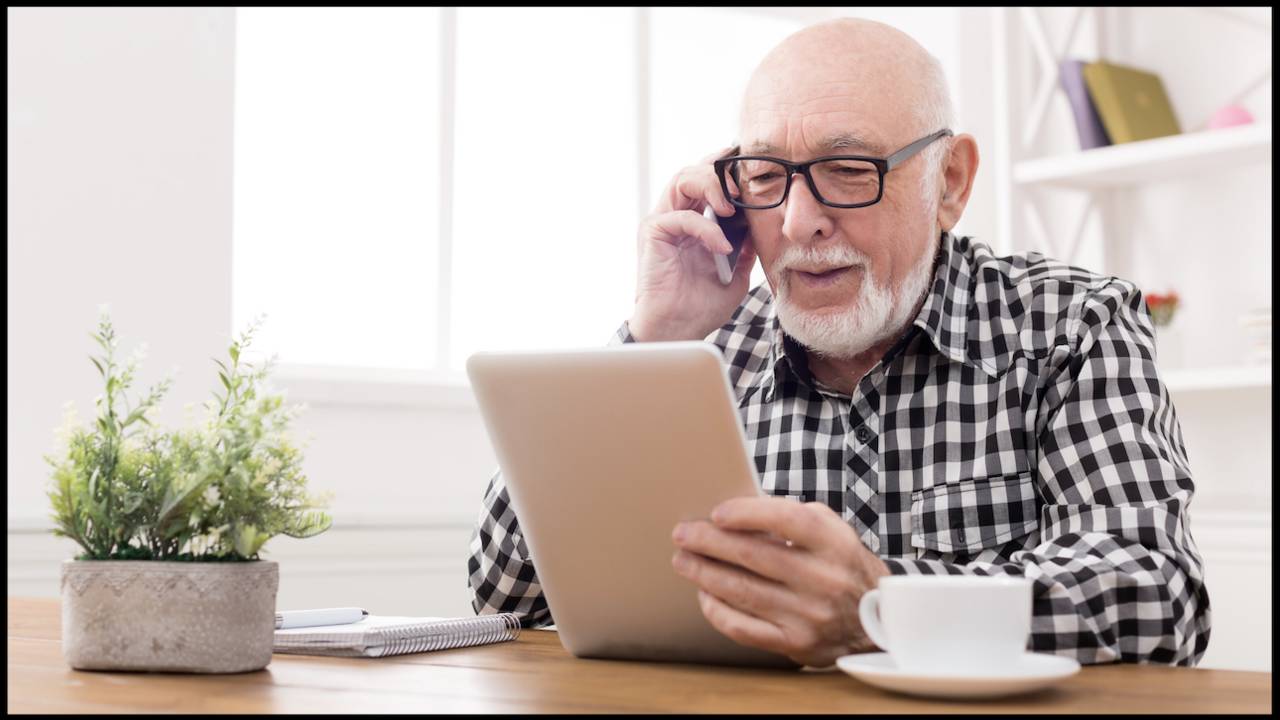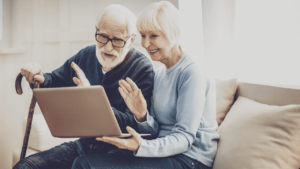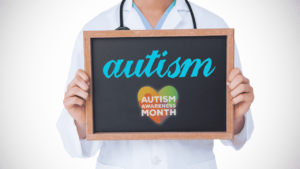With the Coronavirus affecting adults over 60 at greater levels than other age groups, many older adults are electing to “self-isolate” or are actually on “lock down” at long-term care or skilled nursing communities.
Social distancing and protecting the most “at risk” populations (i.e., adults 60 and older) is the current recommendation. And, I will do everything in my power to follow this guideline.
The downside of social distancing, however, is that it increases loneliness and isolation among a group of folks who are already at risk of social isolation- older adults, and more specifically older adults with chronic illness.
What is the risk of social isolation?
There is a well established body of research linking social isolation and loneliness to an increased risk of high blood pressure, heart disease, a weakened immune system, depression, anxiety, cognitive decline, dementia, and even death.
According to the National Institute on Aging, “people who find themselves unexpectedly alone due to the death of a spouse or partner, separation from friends or family, retirement, loss of mobility, and lack of transportation are at particular risk.”
On the other hand, people who engage in meaningful, productive activities with others tend to live longer, boost their mood, and have a sense of purpose.
This is why it is so important to talk about staying well and “socially” active during Coronavirus, but we need to do it safely.
So, here are…
8 Tips for Helping OLDER ADULTS Stay Connected During the Coronavirus Pandemic
1. Keep in Touch with Friends and Family
During uncertain times, it’s important to stay connected to the people who mean the most to you. This is especially important, because when we are facing uncertainty, the comfort of close relationships offers soothing and reassurance.
With “social distancing” in full effect, you may not be able to see your loved ones in person, but with modern technology there are all sorts of ways to stay connected.
For example, FaceTime (iphone), WhatsApp, and Skype all have video telephone options. And if those options seem out of reach, there’s the good ole fashion telephone!
The key here is to stay in touch with the people who matter most to you!
2. Free Hotlines for Older Adults
>> The Friendship Line: 800-971-0016
The Friendship Line is a 24-hour hotline number provided by the Institute on Aging.
It offers friendship and support for the older adults who may be lonely, isolated, grieving, depressed, anxious and/or thinking about death or suicide. It may also be used by caregivers and /or younger disabled adults.
Trained staff and volunteers make and receive calls to and from individuals who are either in crisis or just in need of a friend.
In fact, I just called and spoke with Jim, a warm and pleasant 63 year old man, who is standing by and ready to offer friendship and support.
Learn more about The Friendship Line here!
>> SAGE Hotline 877-360-LGBT (5428)
SAGE stands for “Services & Advocacy for GLBT Elders”
LGTBQ Older Adults experience higher rates of loneliness and isolation. In the midst of Coronavirus, SAGE’s hotline can help!
SAGE connects LGBT older people who want to talk with friendly responders who are ready to listen. If you are an LGBT elder or care for one, call the free SAGE Hotline, toll-free, at 877-360-LGBT (5428). It’s available 24 hours a day, 7 days a week, in English and Spanish, with translation in 180 languages.
Learn more about SAGE here!
3. Call your local Area Agency on Aging
Reach out to your local Area Agency on Aging to see what local telephone or online supports are available near your aging loved ones.
Here’s how to find your local Area Agency on Aging:
- Link to this Eldercare Locator
- Put in your older loved one’s zip code
- Contact the aging agencies they list.
4. Local Senior Centers
Contact the Senior Center near your older loved ones to see if they have staff or volunteers available to call older adults and check in on them. The Area Agency on Aging (mentioned in item #2) can give you a list of the Senior Centers near your older loved ones.
5. Local Religious Institution- Churches, Synagogues, Mosques, etc.
During stressful times, people often turn to spiritual support as a coping strategy. Contact your older loved one’s religious institution to see if they have staff or volunteers available to call older adults and provide spiritual support over the telephone.
6. Concerned about a chronic illness in the midst of Coronavirus? Call your local chapter of a specific “illness” agency
Call and ask for recommendations or see if they have any counselors or volunteers to work with you (or your loved one) over the phone.
Here are a couple of examples of national health agencies
- Dementia: Alzheimer’s Association
- Parkinson’s Disease: Parkinson’s Foundation
- Stroke: American Stroke Association
- Heart Disease: American Heart Association
- Diabetes: American Diabetes Association
- Cancer: American Cancer Society
7. Already seeing a mental health provider? Ask if they can do Tele-Health appointments.
If your older loved one is currently seeing a mental health provider, call and ask if the mental health provider might be able to meet with you over the phone or over a secure video chat channel in the form of Tele-Health or Tele-Mental Health.
For example: I specialize in providing mental health care to older adults and their families. My outpatient mental health clinic is inside a busy medical center. In the midst of the Coronavirus and recommendations for social distancing, especially to reduce risk of exposure to older adults, I am contacting all of my patients and offering tele-health appointments. Perhaps your mental health provider is willing to do the same.
8. Therapy Apps
Therapy apps are en vogue and may be very helpful in times like this. They are essentially online or telephone therapy options that tend to be available 24/7. Here are three online therapy apps to consider. (Please note that I have no affiliation with any of these apps.)



